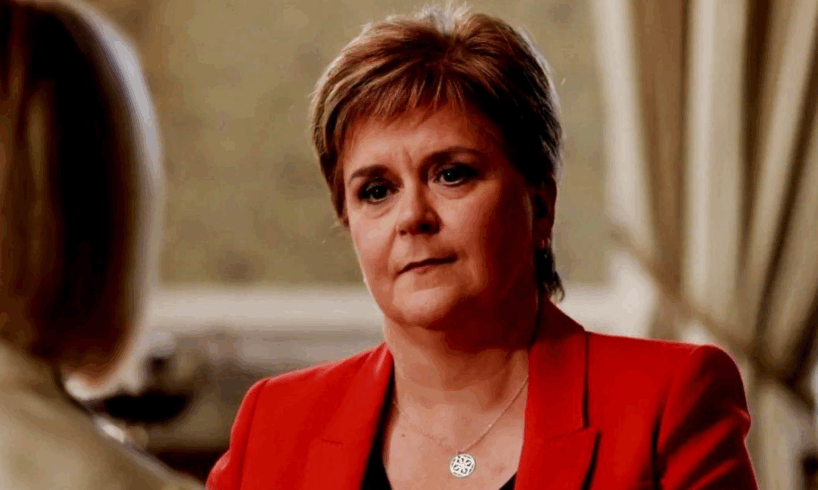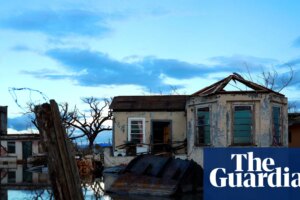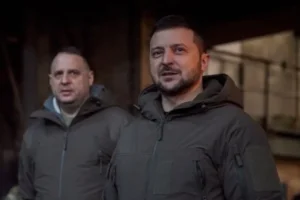
But she claimed that when the case first emerged, she failed to say so plainly because the debate over sex and gender identity in Scotland had become so “toxic” that “all sense of rationality” had been lost.
READ MORE
‘Fenian B******’: Nicola Sturgeon tells of sectarian abuse campaigning in Govan
Nicola Sturgeon reveals what she thinks of the nickname that ‘stuck’
Nicola Sturgeon: I still miss Alex Salmond in some way
While Frankly is due for official release on Thursday copies have already appeared for sale in Waterstones stores.
The retailer said they had not been told by the publisher to not sell the book.
A statement from Waterstones said: “The publication date does not necessarily equal an on-sale date unless the publisher puts an embargo in place. In the case of Nicola Sturgeon’s memoir no sales embargo has been arranged, which means the book can go on sale as soon as it arrives in shops.”
In the book, Ms Sturgeon admits her handling of the Isla Bryson case marked a point where her “acknowledged communication skills deserted” her, saying: “I lost the dressing room.”
Isla Bryon appearing at Glasgow High Court Bryson was found guilty of raping one woman in Clydebank in 2016 and another in Glasgow in 2019 at the High Court in Glasgow in 2023.
He began identifying as a woman only after being charged, and has not legally changed gender, although they are taking hormones and requesting surgery.
Despite the Scottish Court Service expecting Bryson to be transferred to Barlinnie, the Scottish Prison Service (SPS) moved him to the women’s jail at Cornton Vale instead.
After a public outcry, Ms Sturgeon made her opposition known to the SPS, which moved Bryson to HMP Edinburgh.
The case came just weeks after MSPs passed the controversial Gender Recognition Reform (Scotland) Bill at Holyrood.
Even though the Bill never became law, the SPS adopted its central premise, allowing people to self-identify as a new gender.
Ms Sturgeon was asked for days whether she thought Bryson was a woman but avoided saying so.
In a press conference in January 2023, she told journalists: “She regards herself as a woman.”
Asked about the comment, she said: “What I’m saying is, Isla Bryson calls herself a woman. But what I’m trying to say is, in the context of the prison service, that is not the relevant factor here. The relevant factor is the crime that the individual has committed and has been convicted of.”
Pressed again, Ms Sturgeon said: “She regards herself as a woman. I regard the individual as a rapist.”
READ MORE
In the interview, broadcast on Monday night, Ms Sturgeon told ITV’s Julie Etchingham: “Isla Bryson identified as a woman. I think what I would say now is anybody who commits the most heinous male crime against women probably forfeits the right to be the gender of their choice.”
She added: “That probably was not the best phrase to use.”
Pressed on why she did not simply say Bryson is a biological male, Ms Sturgeon replied: “They are a biological male. But that’s about whether… it gets back into the self-ID thing.
“I should have been much more straightforward, I wasn’t. But that’s because of the debate. We’d lost all sense of rationality in this debate. I’m partly responsible for that.”
Sturgeon in Parliament
“That was my failure,” she told ITV. “Anything I say about in the wider world will immediately be taken and transferred to every trans person.
“And if I sometimes still seem as if I’m struggling with how to define Isla Bryson, it’s not out of any concern for Isla Bryson, it’s out of concern for how that then affects the wider trans community and that is difficult.”
Asked about the Gender Recognition Reform Bill and why it mattered so much to her, Ms Sturgeon said that when the legislation was first mooted “it was not the divisive, toxic, controversial issue it became”.
“Trans people have always existed,” she added. “They are amongst the most discriminated against and stigmatised groups in our society, and people can chuck as much hate and hostility at me on this issue as they choose.”
Asked if she thought the debate and the botched legislation had made things worse for the lives of transgender people in Scotland, Ms Sturgeon said: “No trans person has ever come to me and said, I really wish you hadn’t tried to make life better.
“We really regret how it’s all unfolded.
“I didn’t, I think, anticipate as much as I should or engage as much as I should on some of the concerns that might then be triggered.
“At the point I knew it was becoming as polarised, I should have… I think I say in the book I wonder if I should have… I want to say it categorically — I should have said, ‘Let’s pause. Let’s take a step back.’
“I fervently believe that the rights of women and the interests of trans people are not irreconcilable at all.”
Scottish Conservative leader Russell Findlay accused Ms Sturgeon of “delusional” thinking and said women would not “swallow this drivel”.
He claimed she had “ignored all warnings that gender self-ID would be a gift to male predators like Isla Bryson” and “ordered her SNP MSPs to vote down my attempts to block rapists and other sex criminals from being able to legally change their gender by self-declaration”.
“Her absurd ideological belief in self-ID collapses with her belated mealy-mouthed admission that this rapist is a man, but she still can’t bring herself to say sorry for all the pain and misery she has caused,” he said.
Mr Findlay argued that without then-Scottish secretary Alister Jack’s “common-sense decision” to block the reforms, “every rapist in Scotland would be able to declare themselves as women with the full support of the state”.
In the interview, Ms Sturgeon also spoke of being hit by a “wave of grief” when she learned of Alex Salmond’s sudden death last year, despite their acrimonious split over sexual misconduct allegations.
The Alba Party leader and former first minister died of a heart attack in North Macedonia in October aged 69.
Sturgeon said she still misses Salmond (Image: free)
“Even today I still miss him in some way, the person that I used to know and the relationship we used to have,” Ms Sturgeon said.
“I thought I had made my peace with it… And then I got a call to tell me that Alex Salmond had died. I started crying on the phone and I just was hit by this wave of grief.
“It was complicated because obviously we weren’t just no longer friends, we were political enemies. There was no prospect I was going to be able to go to his funeral or anything like that.”
She said she later found herself talking to Mr Salmond “in my head” and dreaming they were “still on good terms”.
Ms Sturgeon also became emotional when talking about leading the Scottish Government through the Covid pandemic.
She said she “just lost all perspective” and “started to believe… all the worst caricatures of myself that my political opponents would throw at me” and that she was “responsible for every death.”
A friend persuaded her to seek therapy.
She also revealed she has had her first tattoo, which she jokingly called a “midlife crisis alert”. The design — an infinity symbol with an arrow — stands for “strength, resilience and continuing to move forward, even when it feels impossible”.
She hinted it “might not be my last one”.
When asked about her personal life and if she could now start a relationship with a woman, after coming out as someone who has never considered her own sexuality to be “binary,” Ms Sturgeon said: “Look, I’m just out of a marriage, so I’m not rushing into a relationship with anyone anytime soon. I’m enjoying being my own person for once.”





